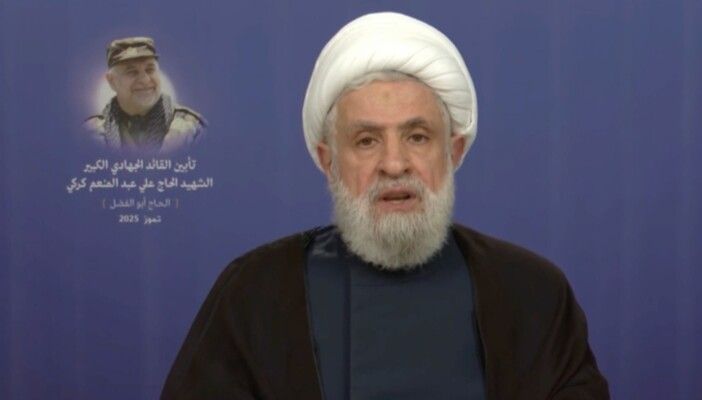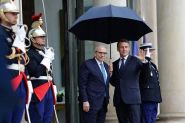
Hezbollah’s Secretary-General Sheikh Naim Qassem, speaking at a memorial for commander Ali Karaki, emphasized the group’s ongoing resistance against Israel and accused the latter of repeatedly violating ceasefire agreements in southern Lebanon.
Qassem claimed that Hezbollah fully implemented the ceasefire along the Litani River and that the Lebanese Army deployed where possible. However, he alleged that Israel breached the ceasefire more than 3,800 times during the past eight months of continued aggression.
Criticizing a new American proposal, Qassem said it “means that all the violations over the past eight months never happened, effectively absolving Israel of all previous aggression.” He insisted that “the only justification for this aggression is the disarmament of Hezbollah because they want to reassure the Israeli entity, and that is an Israeli demand.”
Qassem also described Israel as an expansionist power and a real danger to the region, questioning the rationale for its continued airstrikes in Syria despite the absence of any apparent threat.
He stated that Hezbollah, alongside the Amal Movement and other allied factions, forms a sovereign national front committed to Lebanese independence under the Taif Agreement. He warned of “an existential threat to the resistance, its environment and Lebanon with all its sects.”
Qassem identified the “real dangers” facing Lebanon as “Israel from the south, ISIS-affiliated groups on the eastern border and American tyranny controlling Lebanon.” He added, “After removing the Israeli threat and danger, we are ready to discuss a defense strategy, but today we will not give up our strength, and we are fully prepared for defensive confrontation.”
Qassem further warned, “If a decision is made, it will not take long to attack from eastern Lebanon.” He dismissed expectations of sectarian discord within the Shia community, emphasizing that “the resistance environment is cohesive, and Hezbollah and Amal share a strategic alliance.”
Qassem concluded by acknowledging the high cost of confrontation, but insisted that surrender would leave nothing behind, urging Lebanon to learn from regional developments and the wider world.



Comments